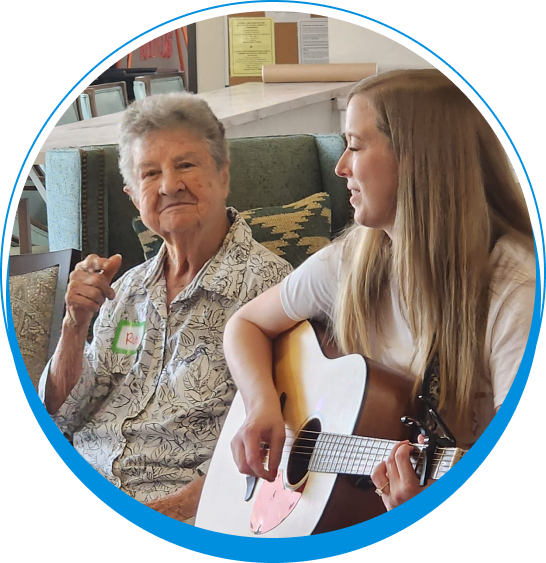From memory loss to illnesses and injuries, dementia health care can be complex and require the expertise of many types of health care providers. Working collaboratively with a team of trusted professionals to treat dementia-related health issues, even virtually, can help minimize your stress as a caregiver while maximizing your loved one’s quality of life.
Learn how you can work best with your dementia health care team.
Build Your Care Team
Monitoring health conditions, staying on top of doctor appointments (virtual and in-person) and developing a plan with professionals you trust can not only improve your loved one’s comfort levels and overall quality of life, but could also extend their life span and reduce preventable health issues. Some of the key team members who will provide care can include your loved one’s general practitioner; various specialists, such as a neurologist, psychiatrist and/or geriatrician; and their facility’s on-site care team if they are in a community setting. Your loved one may also require other services, like hospice, depending on their current state and health care needs.
Share and Store Pertinent Info
As the gate keeper of your loved one’s medical history and life story, the information you document and share with each team member is the catalyst to developing a solid health care plan. Here are a few ways you can keep everyone on your team up to date and on the same page:
- Be well-versed in your loved one’s health history to keep your team abreast of any past/ current issues, treatments (including medications), complications and other important info.
- Share their personal preferences – such as likes, dislikes, wants and wishes – to decrease stress and agitation and increase comfort and contentment.
- Make sure you keep hard copies of all records. If your health care provider doesn’t give you any documentation, you can always request they send you copies via email, mail or fax.
- During each visit or medical encounter, take notes or audio record your visit (with permission from your doctor) to ensure you accurately remember important details.
- Educate yourself on the issues at hand by doing your own research and asking questions – e.g., ask your provider to explain medical terms or test results that are hard to comprehend.
- Get an understanding of the pros and cons of all possible treatment options and inquire about alternatives.
Advocate for Their Best Interests
You know your loved one best and using your voice to speak up in support of them, when necessary, is an important part of your role. Whether during a general wellness exam or emergency hospital stay, don’t be afraid to express your concerns to ensure your loved one is getting the medical attention they need and deserve. And for end-of-life situations, it’s also great to have an advance care plan in place to fulfill their final wishes and to reduce the stress of making difficult medical decisions on their behalf.
As dementia care specialists, we know navigating health care for dementia patients can be challenging. Partner with our trusted experts to develop the best health care plan for you and your loved one and join our dementia care community for more helpful information on dementia-related topics.


